Losing a hand can be a life-altering experience, but modern prosthetic technology offers remarkable solutions to restore functionality and confidence. Prosthetic hands have evolved to include diverse types and features, catering to a wide range of needs, lifestyles, and preferences. From mechanical designs that provide basic movement to advanced bionic hands capable of mimicking natural motions, the options are as varied as the individuals who use them.
Choosing the right prosthetic hand is about more than just mobility—it’s about finding a solution that integrates seamlessly into your life, supports your goals, and feels like a natural extension of yourself. At Robobionics, we’re dedicated to guiding users through this journey, ensuring that every individual can make an informed and confident decision.
Understanding the Types of Prosthetic Hands
Prosthetic hands are designed to address diverse user needs, ranging from basic functional tasks to intricate activities that require precision and dexterity. Each type has unique characteristics, making it essential to match the device to the user’s lifestyle, physical requirements, and personal preferences.
Mechanical Prosthetic Hands
Mechanical prosthetic hands, often referred to as body-powered prosthetics, are the simplest type of prosthetic devices. These hands rely on a harness and cable system to function, with the user’s movements—such as shoulder or upper-arm motions—translating into the opening or closing of the hand.
These devices are durable and cost-effective, making them an excellent choice for individuals who prioritize reliability and affordability. Mechanical hands are particularly suitable for heavy-duty tasks, as their straightforward design ensures resilience in demanding environments.
However, their functionality is limited to basic grip motions, which may not meet the needs of users seeking advanced capabilities.
Businesses can enhance the appeal of mechanical prosthetics by offering lightweight materials, ergonomic designs, and user-friendly harness systems. Educating users on the durability and low maintenance of these hands can also help position them as a practical and dependable solution.
Myoelectric Prosthetic Hands
Myoelectric prosthetic hands represent a significant advancement in prosthetic technology. These hands use sensors to detect electrical signals generated by the user’s muscles, allowing for more natural and precise control.
Myoelectric hands can perform multiple grip patterns, enabling users to carry out tasks such as holding delicate objects, typing, or shaking hands.
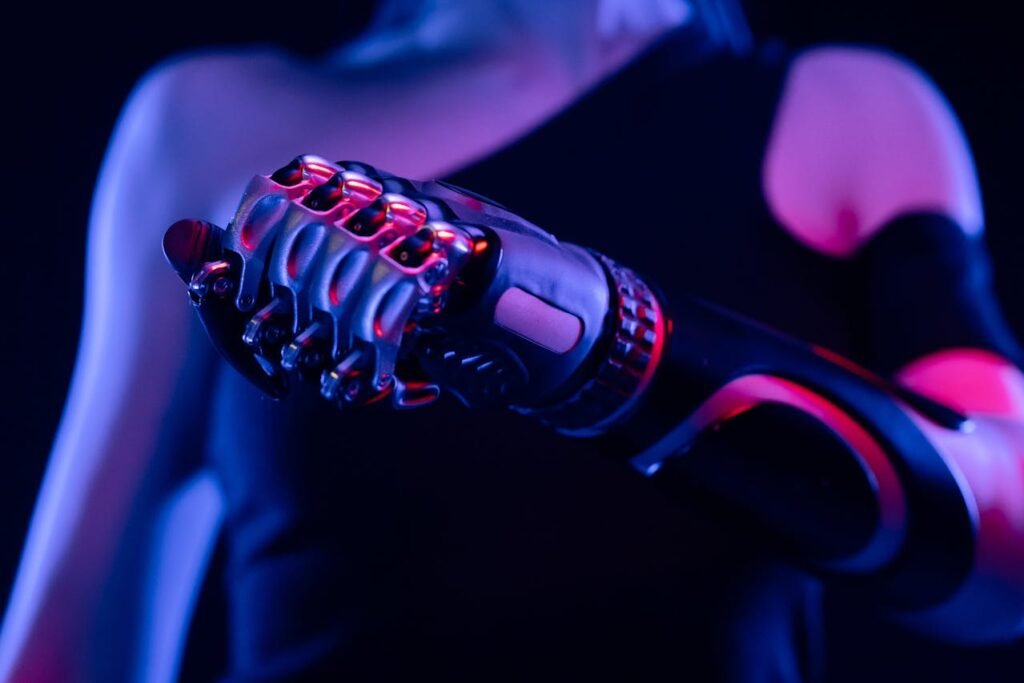
The integration of microprocessors further enhances the functionality of these devices, offering adaptive responses and smoother movements. However, the complexity of myoelectric hands comes with a higher cost and the need for regular maintenance, making them an investment in both time and money.
For businesses, offering comprehensive training and support for myoelectric prosthetics is crucial. Users may require assistance in mastering the device’s controls and understanding its capabilities.
Highlighting the benefits of advanced functionality and customizable settings can help users see the value of this innovative technology.
Bionic Prosthetic Hands
Bionic prosthetic hands are at the forefront of prosthetic innovation, incorporating features such as sensory feedback, artificial intelligence, and wireless connectivity. These hands can mimic natural movements with remarkable accuracy, providing users with an intuitive and responsive experience.
Sensory feedback systems allow users to “feel” pressure or texture, making tasks like gripping fragile objects more intuitive. Meanwhile, AI-powered algorithms enable the prosthetic to learn and adapt to the user’s behavior over time, further enhancing functionality.
Bionic hands are ideal for individuals with active lifestyles or those seeking the closest approximation to natural hand movements.
For businesses, the key to promoting bionic prosthetics lies in emphasizing their transformative impact. Demonstrating real-world applications, such as improved independence or enhanced professional performance, helps users visualize how these devices can elevate their daily lives.
Key Considerations When Choosing a Prosthetic Hand
Selecting the right prosthetic hand involves evaluating various factors that influence comfort, functionality, and long-term satisfaction. For both users and businesses, understanding these considerations ensures that the prosthetic aligns with individual needs and expectations.
Functionality and Lifestyle
The primary consideration when choosing a prosthetic hand is how well it fits into the user’s daily life. For individuals who need a prosthetic for general tasks like eating, writing, or basic work-related activities, a mechanical or myoelectric hand may suffice.
However, users with specialized needs—such as musicians, athletes, or those working in fields requiring fine motor skills—may benefit from bionic hands with advanced features.
Businesses can play a pivotal role in this decision-making process by conducting lifestyle assessments. These evaluations help identify specific requirements and ensure that the prosthetic offers the necessary functionality without overcomplicating the user’s experience.
Fit and Comfort
The fit of a prosthetic hand significantly impacts its usability. A poorly fitted device can lead to discomfort, reduced mobility, and even health complications like skin irritation or pressure sores. Customization of the socket—the part that connects the prosthetic to the residual limb—is crucial for ensuring a snug and comfortable fit.
For businesses, investing in technologies like 3D scanning and printing can enhance the precision of socket designs. Providing users with trial fittings and opportunities for adjustments ensures that the prosthetic feels natural and integrates seamlessly into their daily routines.
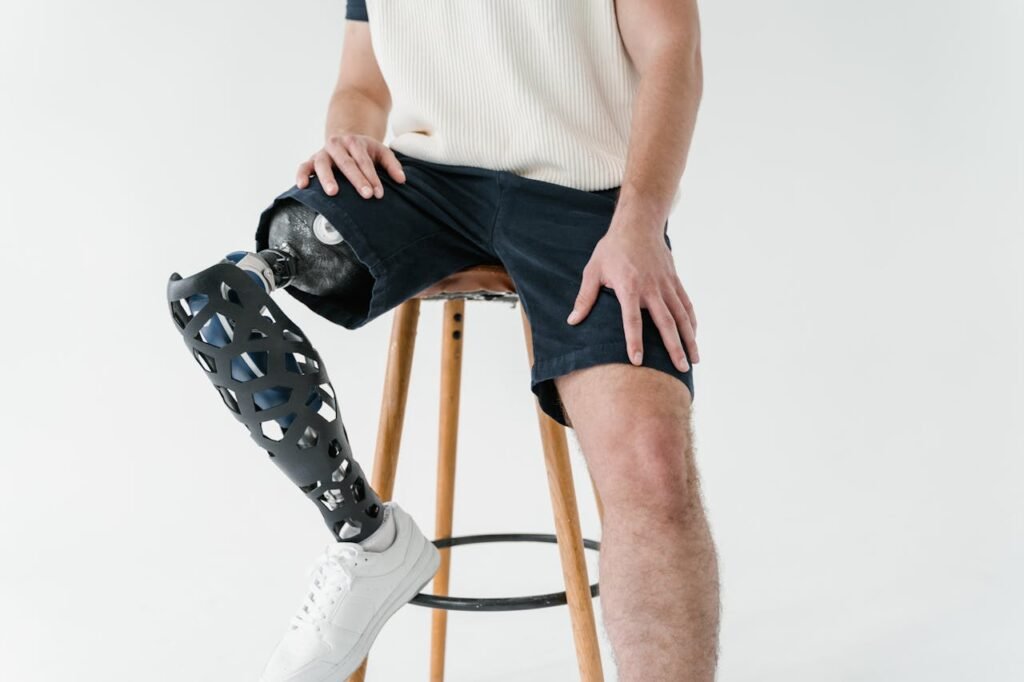
Cost and Accessibility
The cost of a prosthetic hand is a critical factor for many users. While advanced devices like bionic hands offer unparalleled functionality, their higher price can be prohibitive.
Mechanical hands and basic myoelectric devices are often more affordable, making them a practical choice for individuals with budget constraints.
Businesses can address cost concerns by offering flexible financing options, modular designs that allow for incremental upgrades, or partnerships with insurance providers to subsidize expenses.
Transparency about pricing and the long-term value of each prosthetic type helps users make informed financial decisions.
Maintenance and Durability
Prosthetic hands are an investment, and their longevity depends on factors like maintenance, usage patterns, and environmental conditions. Mechanical prosthetics are typically low-maintenance, requiring occasional adjustments or part replacements.
Myoelectric and bionic hands, with their electronic components, require regular servicing to ensure optimal performance.
Businesses can enhance user satisfaction by offering maintenance packages, clear care instructions, and accessible support services. Educating users about proper maintenance practices, such as cleaning sensors or checking battery life, ensures that the prosthetic remains functional and reliable over time.
The Role of Technology in Modern Prosthetic Hands
Advancements in technology have revolutionized prosthetic hands, offering users unprecedented levels of functionality and integration. From intuitive controls to connected features, modern prosthetics are redefining what’s possible for individuals with limb loss.
Sensory Feedback for Natural Interaction
One of the most groundbreaking innovations is the incorporation of sensory feedback. By using pressure sensors and haptic systems, prosthetic hands can simulate the sense of touch, enabling users to perform tasks with greater confidence and precision.
This technology is especially valuable for activities that require fine motor skills, such as holding fragile objects or using tools.
For businesses, integrating sensory feedback into prosthetic designs offers a competitive edge. Highlighting the practical benefits of this feature in marketing campaigns or product demonstrations helps users understand its transformative impact.
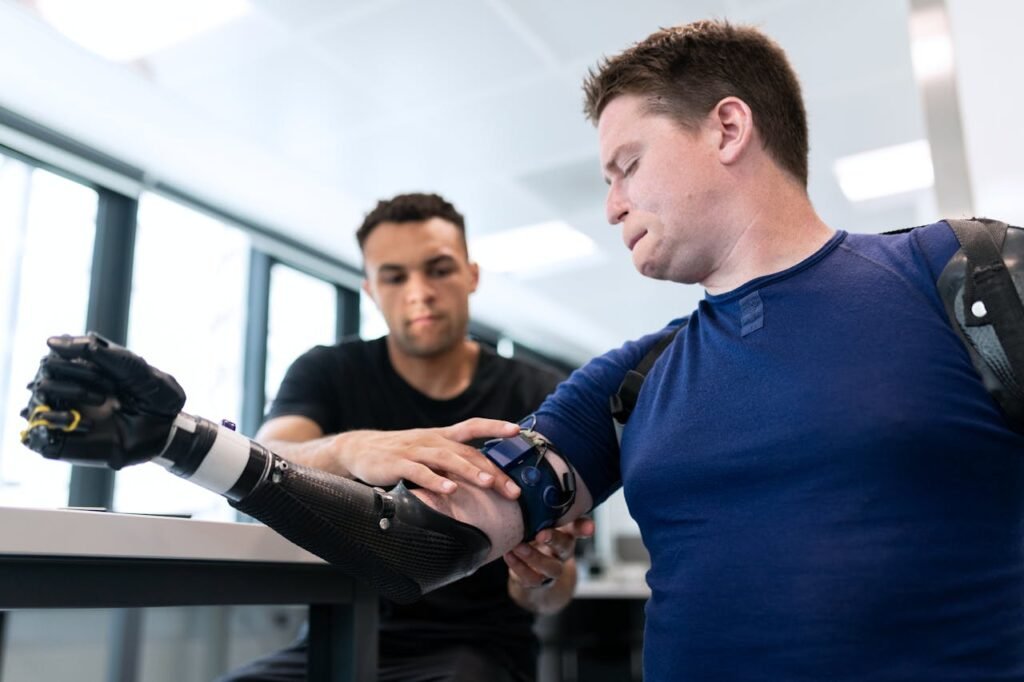
AI and Machine Learning for Personalization
Artificial intelligence is playing an increasingly important role in prosthetic technology. AI-powered hands can learn from the user’s movements and preferences, adapting over time to provide a more intuitive experience.
This level of personalization reduces the learning curve and enhances usability, particularly for first-time users.
Businesses can leverage AI to differentiate their products by offering prosthetics that evolve alongside the user’s needs. Partnering with tech developers to refine machine learning algorithms ensures that devices remain at the cutting edge of innovation.
Advancements in Sensor Technology
At the core of modern prosthetic hands is the integration of advanced sensors. These sensors detect muscle signals, pressure, and even environmental conditions, enabling the prosthetic to respond dynamically to the user’s intent.
Muscle sensors, such as myoelectric detectors, read the electrical signals generated by the residual limb’s muscles and convert them into movement commands. This allows for precise and intuitive control of the prosthetic.
Pressure sensors enhance functionality by providing real-time feedback. For instance, they help users apply the right amount of force when gripping delicate objects like a glass or when manipulating tools.
Incorporating these sensors ensures that users feel more connected to their prosthetic, which fosters greater confidence and reduces the risk of accidental errors.
Businesses can invest in refining sensor technology to improve accuracy, responsiveness, and durability. Collaborating with research institutions or tech startups to develop proprietary sensors can create unique selling points that set products apart in the competitive prosthetics market.
Integration of Artificial Intelligence
Artificial intelligence (AI) has become a game-changer in prosthetic technology, particularly for bionic hands. AI algorithms enable the prosthetic to learn from the user’s patterns and adapt to their behavior over time.
For example, an AI-powered hand can anticipate commonly performed tasks, such as gripping a pen or holding a smartphone, and adjust its movements accordingly. This reduces the user’s cognitive load and enhances the overall experience.
For businesses, incorporating AI into prosthetic designs offers a pathway to creating smarter, more intuitive devices. Partnering with AI developers to integrate machine learning capabilities can ensure continuous improvement, as these hands refine their performance with extended use.
Marketing these advanced features as tools for independence and convenience can resonate strongly with tech-savvy users.
Connectivity and the Internet of Things (IoT)
The rise of connected devices has brought prosthetic hands into the digital ecosystem through IoT technology. Modern prosthetics now feature Bluetooth or Wi-Fi connectivity, allowing users to link their devices to smartphones, tablets, or wearable tech.
This connectivity enables real-time monitoring, adjustments, and troubleshooting, often through dedicated mobile apps.
IoT integration also allows for remote updates and diagnostics, ensuring that users always have access to the latest features and support. Businesses can leverage IoT technology to provide value-added services, such as usage analytics, personalized performance insights, or virtual consultations.
This not only enhances user satisfaction but also strengthens customer loyalty by fostering a sense of continuous care and innovation.
Gamification in Rehabilitation
Rehabilitation plays a critical role in helping users adapt to their prosthetic hands, and gamification has emerged as a powerful tool to make this process engaging and effective.
By incorporating interactive elements into rehabilitation programs, such as virtual reality simulations or app-based exercises, users can practice controlling their prosthetic in a fun and immersive environment.
For businesses, developing gamified rehabilitation tools in conjunction with prosthetic designs can provide a holistic user experience.
These tools not only improve muscle memory and dexterity but also build emotional connections with the device, making users more likely to embrace their prosthetic as an integral part of their lives.
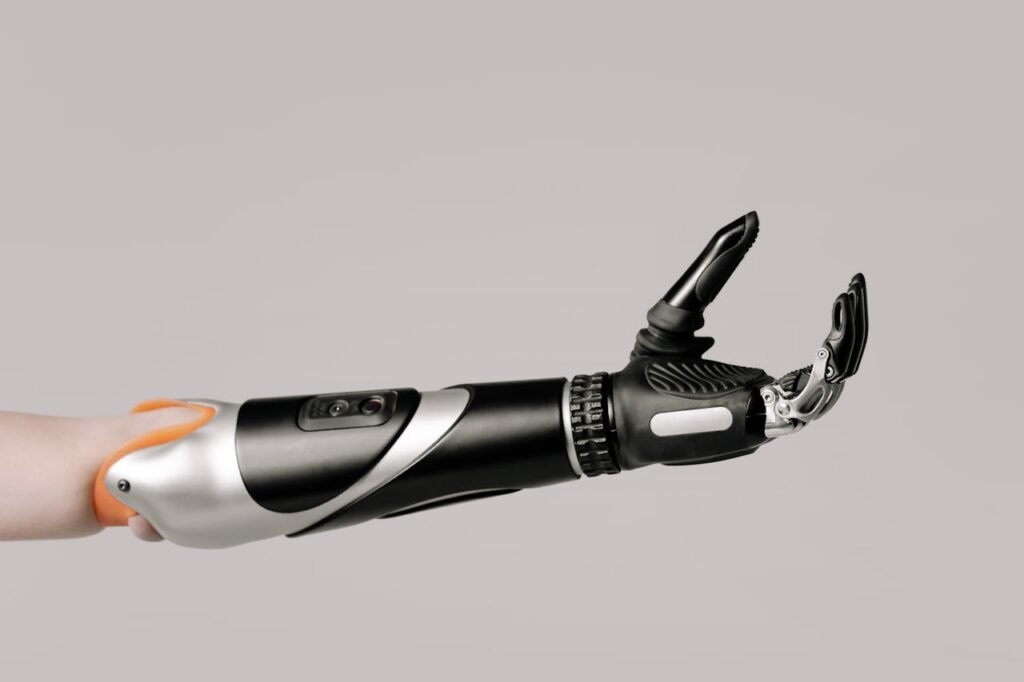
The Future of Prosthetic Technology
Looking ahead, the future of prosthetic hands lies in further bridging the gap between human and machine capabilities. Technologies such as direct neural interfaces, where prosthetics connect directly to the user’s nervous system, promise unprecedented levels of control and sensory integration.
Additionally, advancements in materials science could lead to prosthetics that are lighter, stronger, and more lifelike.
Businesses should prepare for these innovations by investing in research and development and building strategic partnerships with pioneers in emerging technologies.
Highlighting a forward-thinking vision in marketing efforts can attract users who value cutting-edge solutions and align with brands that represent progress.
Exploring the Adaptability of Prosthetic Hands
One of the most important factors in choosing a prosthetic hand is its adaptability to various scenarios and environments. A well-designed prosthetic should not only restore mobility but also enable users to engage in a wide range of activities, from work and recreation to personal care and social interactions.
Multi-Functionality for Diverse Tasks
Modern prosthetic hands are equipped with features that allow users to transition seamlessly between tasks. For example, advanced myoelectric and bionic hands can switch between grip patterns to accommodate different activities.
A firm grip might be used for holding heavy objects, while a delicate pinch grip is ideal for handling small, fragile items.
For businesses, designing prosthetics that prioritize versatility ensures broader appeal. Offering demonstrations that showcase the hand’s ability to adapt to different tasks can help potential users envision its role in their everyday lives.
Customization for User Preferences
Another key aspect of adaptability is the ability to customize a prosthetic hand to match individual preferences. This goes beyond functionality to include aesthetic choices, such as color, texture, or even lifelike skin tones.
Personalized designs can boost the user’s confidence and encourage regular use of the prosthetic.
Businesses can enhance their offerings by providing customization options that reflect user identity and lifestyle. Creating interactive platforms where users can visualize and select their preferences further enriches the customer experience.
Resilience in Dynamic Environments
For users with active lifestyles, the durability of a prosthetic hand is paramount. Devices must withstand various environmental conditions, from extreme weather to physical strain during sports or outdoor activities.
High-quality materials like carbon fiber, titanium, and silicone contribute to both strength and flexibility, ensuring the prosthetic remains functional under demanding circumstances.
Businesses should emphasize durability in their product development and marketing strategies. Highlighting features like waterproofing, shock resistance, and wearability in rugged conditions can appeal to users who prioritize resilience and long-term reliability.
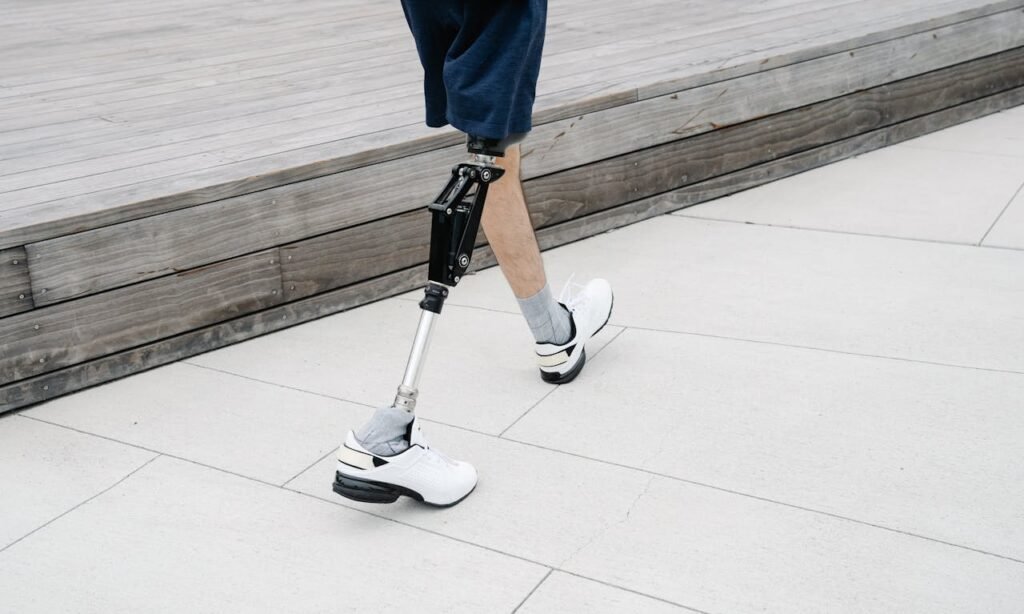
The Importance of Rehabilitation and Training
Adapting to a prosthetic hand is not just about selecting the right device—it also requires a period of adjustment and training. Users must learn to control their prosthetic, understand its features, and integrate it into their daily routines.
Rehabilitation for Mastery
Rehabilitation programs tailored to the type of prosthetic hand are crucial for building user confidence and proficiency. For mechanical hands, this may involve mastering the harness system and optimizing body movements.
For myoelectric and bionic hands, training focuses on interpreting muscle signals and using advanced features like grip switching or sensory feedback.
Businesses can collaborate with rehabilitation centers to offer integrated training packages. Providing instructional materials, such as video tutorials or app-based guides, further supports users as they adapt to their prosthetics.
Ongoing Support and Community Building
The journey with a prosthetic hand doesn’t end with the fitting process. Users benefit from ongoing support that addresses maintenance, upgrades, and troubleshooting.
Businesses that foster a sense of community—through online forums, peer support groups, or user events—can create an environment where users feel supported and inspired.
At Robobionics, we believe that empowering users extends beyond providing a device. By combining advanced technology with personalized care, we ensure that every user has the tools and support they need to succeed.
Building Muscle Memory for Seamless Use
Rehabilitation focuses on helping users develop the muscle memory necessary to operate their prosthetic hand with precision. This is particularly important for myoelectric and bionic hands, where users must learn to control the device through muscle signals.
Targeted exercises, such as gripping objects of varying sizes or performing repetitive movements, train the muscles to produce consistent and reliable signals.
Businesses can collaborate with rehabilitation centers to create comprehensive programs tailored to different types of prosthetic hands.
Offering these services as part of a package adds value for users and ensures they can maximize the functionality of their device. Incorporating digital tools, such as video tutorials or app-based guidance, allows users to practice at their own pace and track their progress.
Addressing Emotional and Psychological Adaptation
Beyond physical training, rehabilitation also involves addressing the emotional and psychological aspects of using a prosthetic hand. Many users face initial challenges, such as frustration over learning curves or self-consciousness about their appearance.
Effective training programs should integrate psychological support, helping users build resilience and confidence as they adapt to their prosthetic.
For businesses, partnering with mental health professionals or offering peer support networks can provide users with the encouragement they need. Creating online communities where users share experiences and advice fosters a sense of belonging, making the adaptation process less isolating.
Highlighting these resources in marketing materials demonstrates a commitment to holistic user care.
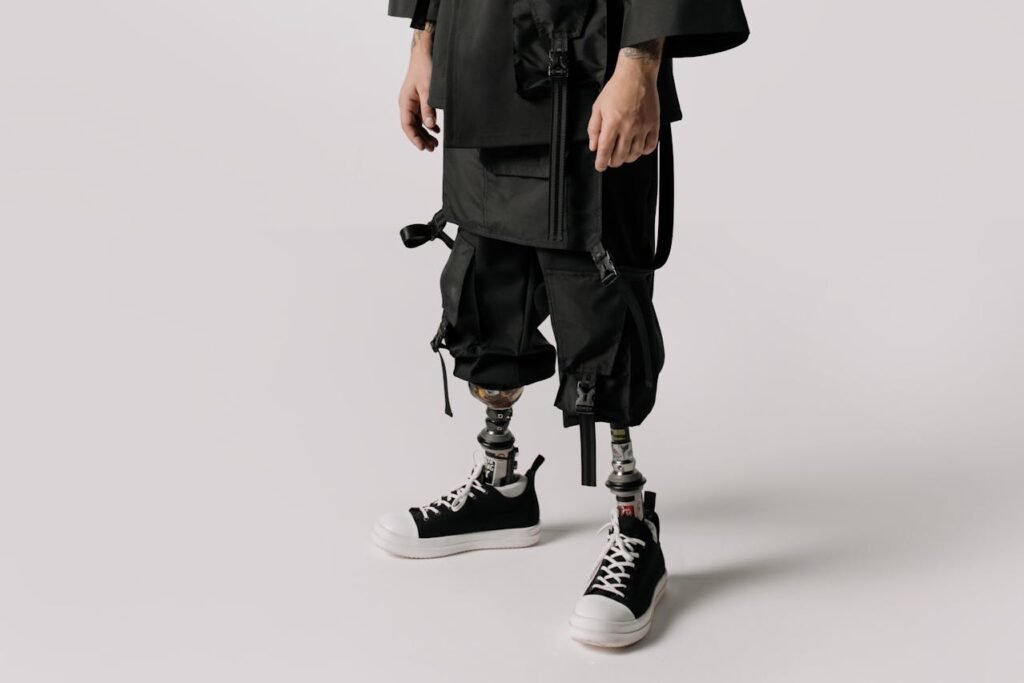
Adapting to Everyday Tasks
Training programs must be practical, focusing on real-world applications to ensure users can incorporate their prosthetic hand into everyday tasks. Activities such as cooking, typing, or personal grooming may require users to develop specific skills or adopt new techniques.
Prosthetic-specific training, guided by occupational therapists, can help users master these tasks efficiently.
Businesses can enhance user training by offering task-specific modules or workshops. For example, a session focused on using a prosthetic hand for artistic or professional activities can empower users with tailored skills.
Including adaptive tools or attachments as part of the prosthetic package further supports users in achieving their goals.
Conclusion
Selecting the right prosthetic hand is a deeply personal decision that requires careful consideration of functionality, fit, adaptability, and lifestyle needs.
Whether opting for a mechanical hand for its simplicity and durability, a myoelectric hand for its advanced control, or a bionic hand for its cutting-edge features, the choice should ultimately reflect the user’s goals and priorities.
For businesses, the path to supporting users lies in delivering solutions that balance innovation with accessibility. Offering tailored consultations, customization options, and comprehensive aftercare ensures that every prosthetic hand meets the unique needs of its user.
Emphasizing adaptability, durability, and ease of use in product development further enhances user satisfaction and builds trust.
At Robobionics, we take pride in empowering individuals through prosthetic solutions that redefine mobility and independence. Our commitment to innovation and personalized care ensures that every user finds a device that feels not just functional but transformative.



